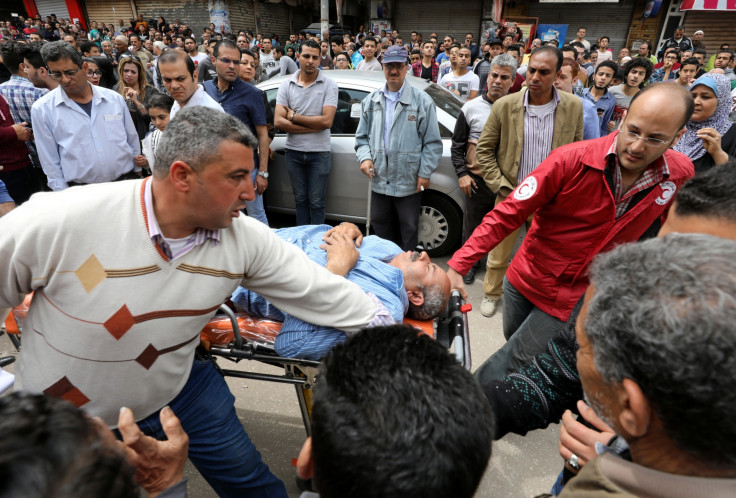UK Coptic bishop plays down 'fear' despite global persecution rise
Charity Open Doors claim 322 Copts are persecuted every month.
The most senior member of the UK Coptic Orthodox Church has played down reports of fear among the faith, despite heightened security at its headquarters in Hertfordshire and a rise in their persecution worldwide.
Bishop Angaelos stated the new security adjustments at the Coptic Orthodox Church in Stevenage was merely to provide reassurance to members and denied any impending threat over the Easter weekend.
On 9 April, Palm, deadly attacks were unleashed upon two Coptic churches in Egypt – killing 44 people. Isis claimed responsibility.
The reports of increasing incidents are backed up by charity Open Door, who revealed that each month 322 Christians are persecuted, 214 churches or religious buildings are destroyed, and 772 acts of violence are committed.
Angaelos said it was not "part of our DNA" to be afraid of escalating attacks on Copts.
"I've heard lots of words. I've heard concern, I've heard anxious, I've even heard angry but I haven't heard the word fearful from anyone – I don't think it's part of our DNA.
"We are peaceful, we are loving, we are sacrificial, we are forgiving, and yet we still remain a target and I suppose it's just a cross we continue to carry."
A Daily Telegraph journalist who has covered the ongoing conflict with some interest believes Western governments are attempting to avoid the notion of organised attacks on Coptic Christians to stop the encouragement of more attacks by Islamists.
Tim Stanley said: "Some Western governments are legitimately worried about appearing to validate the narrative of the Islamists that this is about Islam versus Christianity, so they don't want to talk about the persecution of Christians and I get that.
"The problem is that's exactly what is actually happening. Moreover, I fear that some of that is political correctness."

One British Coptic Christian, Amir, stated his belief that his faith is seen as easy targets because they do not fight back against persecution.
He said: "In a way, it can be like, because we are not retaliating, we are a weaker target and we are easy prey.
"But at the same time, I feel like there is something profoundly difficult about attacking someone who is not retaliating.
"For someone to turn the other cheek and for you to feel okay to hit them, I feel like it would take something quite inhumane to do something Iike that."
© Copyright IBTimes 2025. All rights reserved.





















